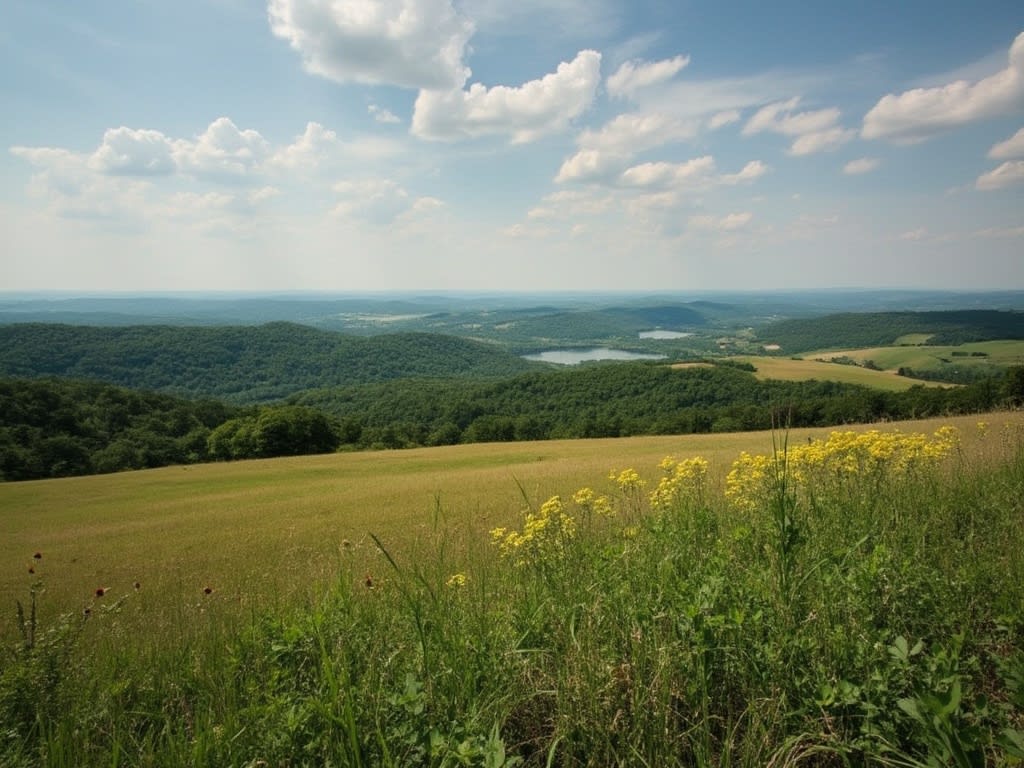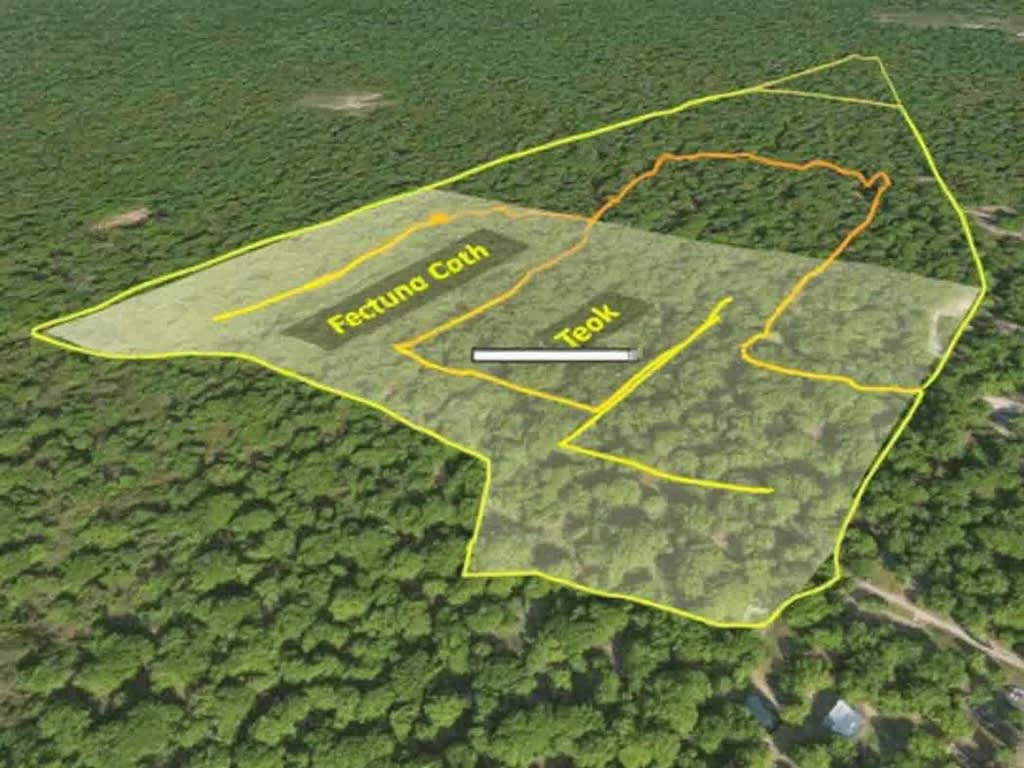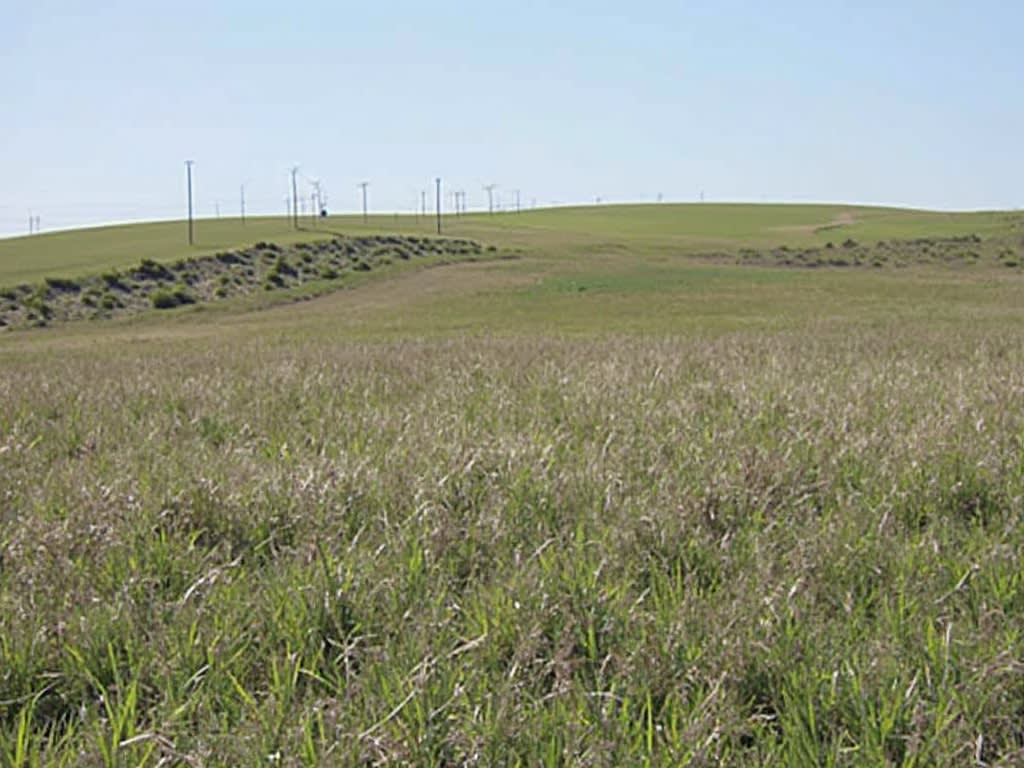Tennessee land investment offers exceptional opportunities thanks to rapid population growth in major cities and strong economic expansion across urban areas. Property values continue to rise, particularly near employment centers. Investors can choose from residential and commercial parcels, agricultural plots, and recreational land. Recent data shows farmland values jumped 8.8% between 2022-2023, reaching $4,500 per acre.
Key Takeaways:
- Tennessee’s competitive property tax rate of 0.69% (reducing to 0.25% for residential) creates an appealing environment for land investors
- Urban plots in Nashville can sell for up to $1 million per acre, while rural properties start between $2,000-$5,000 per acre
- Adding improvements like access roads and basic utilities can boost land values by 15-25%
- Land investments generate income through rentals, farming operations, timber sales, and commercial developments
- Investment challenges include potential natural disasters, changes in zoning rules, and extended holding periods of 5-10 years for significant value growth
I recommend focusing on properties near growing urban corridors where demand remains high. For those new to Tennessee land investing, starting with smaller rural parcels can provide valuable experience while limiting initial risk. The key to success lies in thorough research of local market conditions and careful evaluation of property features before purchase.
Why Tennessee Land Values Are Rising
Population Growth Trends
Tennessee’s major cities have seen remarkable population increases, with Middle Tennessee leading the charge. Nashville stands out as a prime example, drawing newcomers with its vibrant economy and cultural scene. Memphis, Knoxville, and Chattanooga follow closely behind with steady growth patterns of their own.
Economic Development Impact
The surge in land values directly connects to job creation across urban centers. Cities like Murfreesboro and Franklin have transformed into economic powerhouses, attracting major employers and spurring real estate demand. I’ve noticed property values climbing steadily, especially in areas surrounding these employment hubs. This growth extends beyond city limits, affecting suburban and rural land prices throughout Tennessee’s rural land market. Business expansion continues to fuel demand for both commercial and residential properties, making Tennessee land an increasingly valuable asset.

Most Profitable Types of Tennessee Land Investment
Prime Investment Categories
Land investment in Tennessee offers multiple paths to profit based on location and usage type. Residential plots near growing suburbs attract builders and fetch strong returns. I find commercial and industrial parcels in metropolitan zones particularly valuable for their development potential.
Agricultural land stands out as a solid option, with Tennessee farmland values jumping 8.8% between 2022-2023 to $4,500 per acre according to USDA’s Economic Research Service. Here are the top-performing land categories:
- Residential development land near expanding suburbs
- Commercial/industrial parcels in metro growth zones
- Agricultural land with proven soil quality
- Timberland for dual income streams
- Multi-use land in high-growth corridors
- Recreational land in tourist-friendly regions
Timberland offers a unique advantage through two revenue streams – regular income from selective tree harvesting and steady property value increases. Multi-use land located in expansion areas commands premium prices due to its flexibility for various developments.
Recreational land, while requiring longer hold periods, provides stable appreciation rates. This category includes hunting grounds, camping areas, and nature preserves. The key to maximizing returns lies in selecting land near infrastructure improvements or population growth centers.

Location and Price Considerations
Urban vs Rural Price Dynamics
Tennessee land prices vary dramatically based on location and development potential. Prime urban plots in Nashville, Knoxville, and Chattanooga command premium rates up to $1 million per acre. Rural properties offer more affordable entry points between $2,000-$5,000 per acre. Fast-growing suburban zones, particularly those with strong development prospects, typically fetch over $100,000 per acre.
Value-Driving Factors
Interstate access plays a crucial role in determining land value. Properties near major transportation corridors like I-40, I-75, I-24, and I-65 attract higher prices due to improved accessibility and commercial potential. I’ve found that local market conditions and recent comparable sales are the primary metrics for establishing fair market value. These key factors influence Tennessee’s best counties for land prices:
- Distance to major metropolitan areas
- Access to interstate highways and main roads
- Current zoning regulations
- Available utilities and infrastructure
- Topography and usable acreage
- Local economic growth indicators
- Surrounding development patterns
- School district quality
Each property requires individual evaluation based on these elements. The most valuable parcels often combine multiple positive attributes, such as interstate access and proximity to growing urban centers. Smart investors focus on areas showing consistent population growth and economic development while maintaining realistic price expectations based on current market trends.
Property Improvements and Infrastructure Impact
Strategic Value Enhancement Methods
Raw Tennessee land presents significant investment potential through targeted improvements. I’ve found that undeveloped parcels typically sell for 30-50% less per acre compared to improved properties. Simple yet effective modifications can substantially boost both usability and market value.
Key property improvements that increase land value:
- Clearing fields and brush to create usable spaces
- Installing gravel or paved access roads
- Adding perimeter fencing for security
- Building recreational features like trails or camping areas
- Constructing storage buildings or equipment shelters
- Setting up basic utilities (water, electric) connections
- Creating drainage systems and erosion control
These strategic enhancements serve multiple purposes – they make the property more functional while demonstrating clear development potential to future buyers. Even basic infrastructure improvements like road access can increase property values by 15-25%.
For recreational land specifically, adding features like maintained trails, food plots, or designated camping zones can attract premium offers from outdoor enthusiasts. The key is making smart upgrades that align with local market demands while keeping costs reasonable relative to potential returns.

Tax Benefits and Economic Advantages
Tennessee offers compelling financial advantages for land investors, starting with remarkably low property taxes. At 0.69% average effective rate, with residential rates dropping to 0.25%, property owners keep more of their investment returns compared to other states.
Multiple Revenue Streams
The state’s economic strength creates diverse income opportunities from land ownership:
- Rental income from residential or commercial properties in high-demand areas
- Agricultural revenue through crop cultivation or livestock farming
- Timber harvesting and sustainable forestry management
- Commercial development potential in expanding business districts
Local economic growth fuels consistent demand for land, backed by major companies establishing operations and maintaining low unemployment rates as reported by the Tennessee Department of Labor. This combination of minimal tax burden and varied income potential makes Tennessee land an attractive option for investors looking to build long-term wealth through real estate.

Investment Risks and Considerations
Primary Risk Factors
Tennessee land investments face several key risks that require careful evaluation. Market swings can quickly alter land values, especially in areas dependent on specific industries or tourism. Property near popular destinations like the Great Smoky Mountains sees significant income shifts between peak and off-seasons.
Raw land typically needs longer holding periods to generate returns, with some parcels taking 5-10 years to appreciate meaningfully. I’ve found that remote properties, particularly those far from major cities like Nashville or Memphis, often stay on the market longer and may sell below asking price.
Here are the main hazards to consider before investing:
- Natural disasters pose ongoing threats, including tornadoes in Middle Tennessee and flooding in low-lying areas
- Zoning regulations can change unexpectedly, limiting development options or property use
- Infrastructure costs for utilities and road access on undeveloped parcels
- Seasonal tourism patterns affect short-term rental income potential
- Extended marketing periods for properties in isolated locations
- Higher maintenance costs for larger acreage
These factors don’t mean Tennessee land is a poor investment – they simply highlight the importance of thorough research and planning. Consider these risks alongside your investment goals and timeline to make an informed decision as recommended by Tennessee real estate experts.

